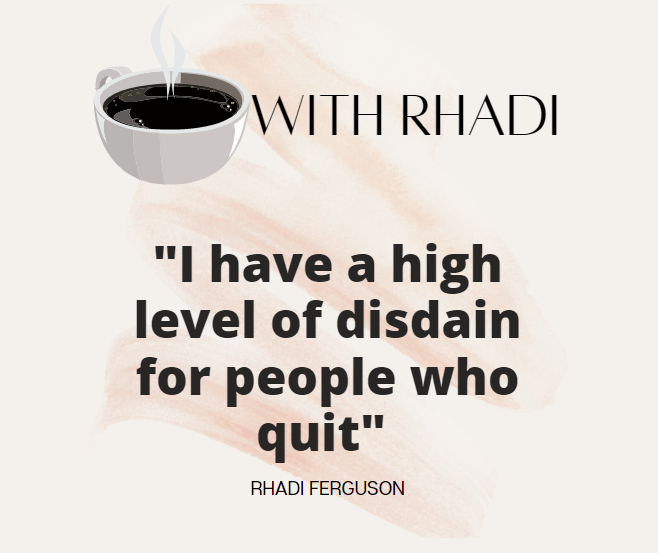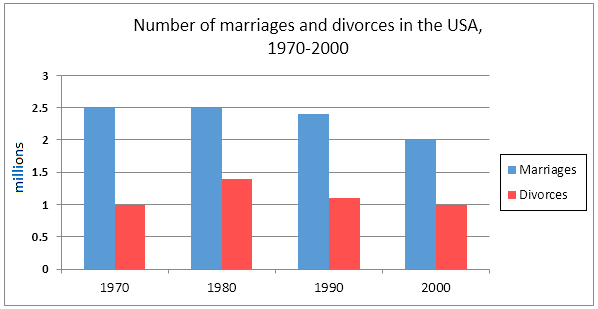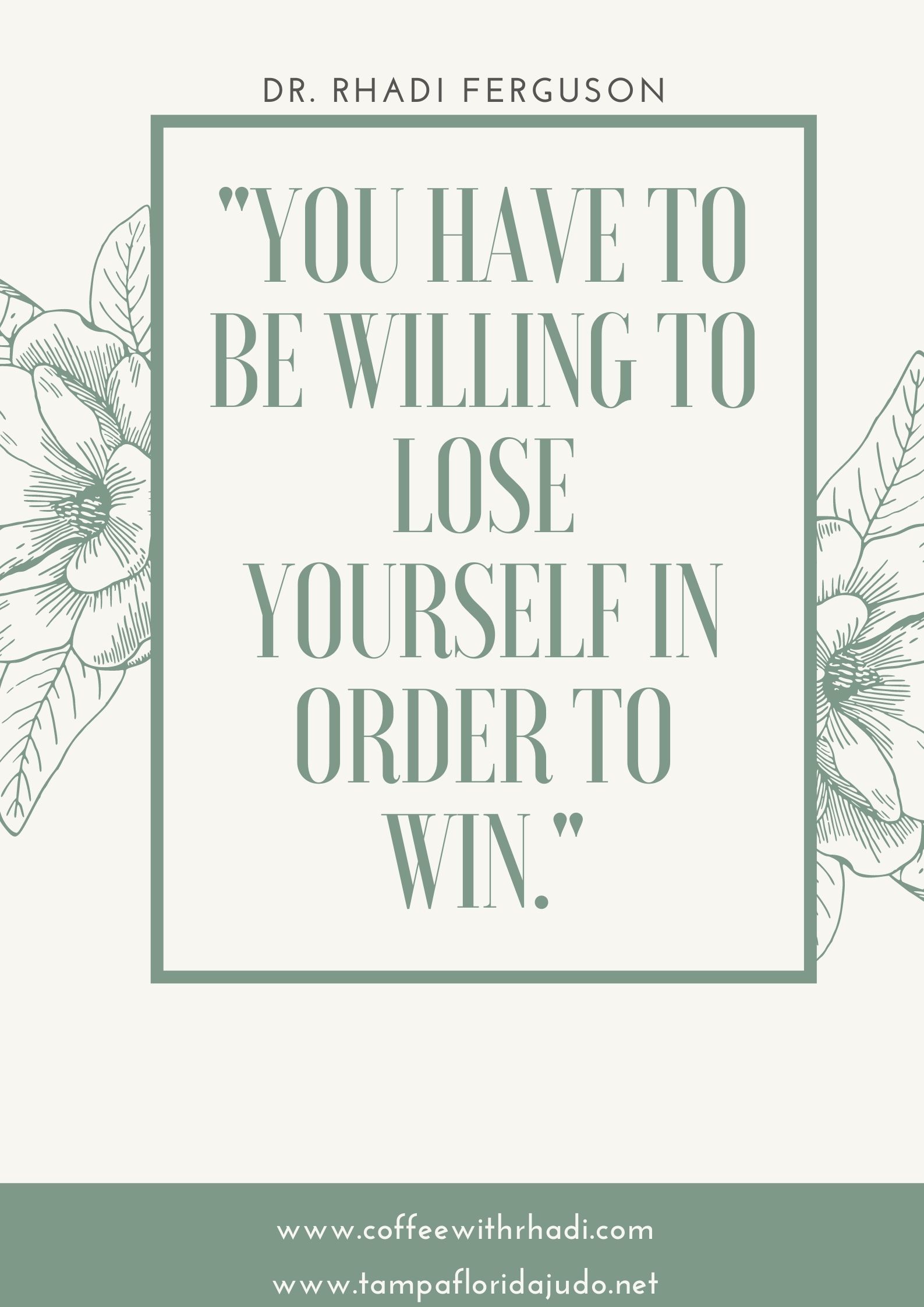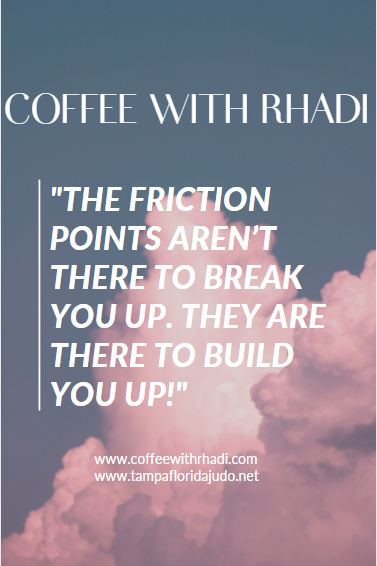Let me let me start off by saying that we had the first two days of friction points, where we talked about what friction points are, how they happen, we talked about the difference between a friction point and a hurdle, a friction point and a wall and a friction point, basically a decision tree.
Then the next day, we talked about friction points and friendships. And as we elevate through the conversation, we want to get more into friction points and how they apply and intimate relationships.
I was married for 17 years. Then I went through I was a fortunate divorce even though a divorce in and of itself was unfortunate. That in and of itself, the change the friction, the different movement in the growth at the end has been great for me, even though I didn’t think it was good to me at the time.
So, I had a discussion about it with Coach Arlo and learned what he experienced throughout his married life that I will be sharing with you here.
Coach Arlo Has been married longer than I have, and he’s been with his wife longer than I had been with my ex. So, there are certain times in our coaching relationships in the switch on process where coach auto takes the lead.
In this situation. There’s a relationship piece that we really want to kind of attack! to have you get a good understanding of it, because I could make this point. But the fact of the matter is that when the friction point came up in my relationship, my relationship dissolved because of it. So, do I have some things to say about it? Of course. Am I the lead in this particular discussion? No, I’m not.
We have a different phrase and in the grappling communities on the mat about embracing the grind, we talked about taking people out to a deep water. Well Coach Arlo says you have to get a person to the point where they want to be done more than they want to When.

I have a high level of disdain for people who quit like that. But I have to learn over a period of time how to respect people’s quit mechanisms, because I have quick mechanisms too, they just happen in different areas. We coach couples, and we coach individuals, we coach people that are married, because people want to be married, People that have been through divorces, people who have no intention to be married and people that want to get married in first place.
We got to coach all different kinds of people. The interesting thing about it is that while everybody might not want to be married or unmarried, or what have you, nobody wants to be alone! Nobody wants to be in their life by themselves.
Coach Arlo has been blessed to be married long enough, be with the same woman long enough, to have watched arguments, they got to be so big, but they become like jokes afterwards. And things that are really small can take you to the point where you can start dealing with real stuff.
Because most of the time in relationships where struggles are, it’s not usually over real stuff. It’s usually over superficial stuff, that’s the way it’s described! The reality is, it’s the real stuff. The problem is you hang on to the superficial stuff because the vulnerability of talking about it.
This is why intimacy is so important and why friction points are so important in helping you get the type of intimacy you need. In order to be able to benefit from being in an intimate relationship in the first place. intimacy isn’t just physical intimacy; it is about a closeness And I’ll tell you a little bit about that in a minute.
We did some research tonight before on this particular topic and we asked ourselves, because we had to look at the highest level of intimate relationship that we recognize per the Christian theoretical framework, and that is that of marriage.
We looked at arranged marriages. We got to the point and our discussion where we had to, we had to sit out sit down and say, let’s take marriage as the as the standard because we have to have something to look at. So we looked at the divorce rate, which is around 50 to 60%. Then we looked at the divorce rate for arranged marriages. It is 4% and in India the arranged marriages, the divorce rate is at 1%.


Now, people get together for a plethora of reasons. People get divorced for a plethora of reasons. When not going through the why people stay, why they laugh, why they got married and all! We’re not going through the raw numbers. There is something to be said about what occurs in arranged marriages and the importance of attraction. Why do you believe that people are able to handle friction points better in arranged marriages than ones when they make the selections on their own?
Coach Arlo has seen Long marriages throughout his life, he got a chance to see his parents early in their marriage, see his grandparents late in their marriage, he got to see a bunch of his aunts, uncles… He also got to see people get married and divorced all the time, he had people see it being marriages to marriages lasts a really long time. He has seen marriages of different types, and they’re all fundamentally good.
He experienced there was a point in the marriage, where the marriage became more important to any individual person. The union was the key, and something about that allow those people to have a level of intimacy that didn’t exist anywhere else in the world with them.
This was the thing that made a difference. So, when we see this means and post about relationships and stuff, we have noticed that people don’t want any of the hard stuff and that is what real good relationships are made out of… It is the hard stuff,
People think love holds relationships together. People fall in love all the time. You better find somebody who can make you wait, because life is hard. When you can have disagreements, and enjoy, the benefit of being in a disagree with somebody who won’t give up on you just because you guys don’t agree or think the same thing about something. That’s a magnificent place to be.

We recognize this place in our friendships all the time. You have a daughter, or you have a sister, or a friend, who has a really good friend of hers, that she would never date!
Sometimes you overlook the struggle in the beginning, when you go back and look at it, you realize that usually started through a disagreement. And it was through that disagreement that you found some common ground in and realized, hey, if I can argue with somebody like that, and still come back to a point where we can begin to greet each other, laugh about it and move forward.
The intimacy drives security. intimacy allows the ability to have authenticity. And that can drive security and the more authentic you could be with a person, the more secure the relationship is. You feel, that’s why it feels so tumultuous. When you’re authentic with somebody and they break your heart, or they cheat on you or they do something that breaks your trust and makes you feel vulnerable or made you ashamed of who you are. That is why it’s so dangerous because of that. So that’s why we’re having this conversation.
Because the in order to get that point where you have a relationship, the bond is there, the intensity is there, intimacy is there and you’ve got the safe place where you can be yourself and they can be themselves. Even when it doesn’t lock up, it can be funny or painful at times.
You get there by going through friction points!

Here is the thing. If you’re willing to give up on the relationship, it’s almost impossible to see the real power in going through those struggles. And if that’s the case, that’s how you get a 50% failure rate of marriages. That’s how relationships fail so easily, is because there’s always a thought process, a reason to leave. if you have a reason you can leave, there’s a reason to say no, this is too much. You’re never going to really give it all you have.
See, when we think about being married, these long-term relationships having partner, soulmate, whatever you want to call it. everything is kind of going well, when sometimes things are going terribly wrong and you just want anybody to help you out. You see those kinds of relationships where somebody is kind of down in the dumps, and somebody brings them along, or somebody meet someone at the top or meet them when they’re both struggling together.
You meet all these people in different places. Whoever you are, at that point in time, may be willing or open to accepting this person. But this person may not be as open to accepting you, as you really are.
When you’re not struggling. We’re not begging for help, but you’re not down in the dumps. Once you get your confidence and feel like you can get it on your own, can this person still maintain that relationship with you? Are they okay with watching you even sometimes become stronger than they are for time, or forever? And it doesn’t change the love and intimacy they have for you, right. And that’s the part where in a relationship, the biggest struggle happens, when it starts becoming a competition of importance.
For some people there comes a point where you want it to be over more than your love, more than your relationship, more than you want to win. That’s how you fail in a marriage or a relationship.
That’s where intimacy requires the value of friction points. Understanding that the friction points aren’t there to break you up. They are there to build you up!
So find somebody that you can make it with. Understand that you are going to change, values are going to change, relationships are going to change, physical things are going to change, Coach Arlo’s mom took care of his father when he couldn’t take care of himself, he watched it… He knows what love is. We watched his grandmother fixing his grandfather’s collar in the coffin. We have watched love extend past life.
So, Understanding the friction points, the importance of friction points and how they need to be dealt with, knowing the difference between a hurdle and the friction points in a relationship is crucial to the growth of your relationship
Visit www.TheVIPLife.com get the Book and learn How To Stop Feeling Guilty For Putting Yourself First!.
PODCAST: Find your platform: https://pod.link/1327983677

